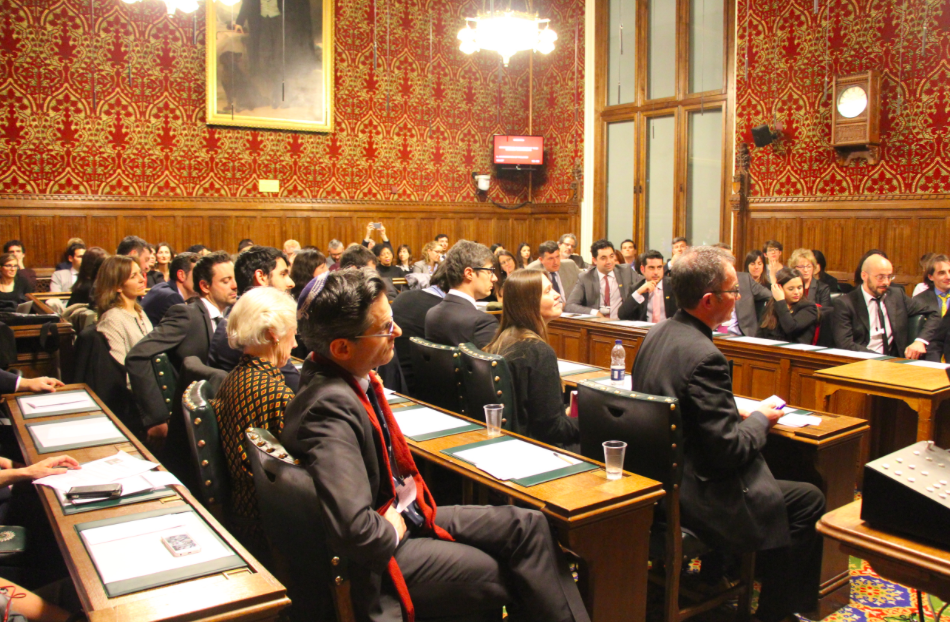19.05.2017 - 20:00
|
Actualització: 22.05.2017 - 16:13
Ireland’s ‘Houses of the Oireachtas’ will create a friendship group on Catalonia in order to get a deeper understanding of its political situation, as well as enhancing trade relationships and promoting cultural exchange. The initiative gathers together members of the Irish Assembly and the Senate representing Fine Gael, Fianna Fáil, and Sinn Féin, the main parties in the bicameral parliament. Thus, Ireland is following the example of other countries such as the United Kingdom, Finland, Switzerland, and Estonia, who also have discussion groups on Catalonia. Catalan Minister for Foreign Affairs, Raül Romeva, will travel to Dublin on Wednesday to attend the presentation of the cross-party group and explain Catalonia’s referendum roadmap to the participants.
One of the ‘Oireachtas Friends of Catalonia’ group’s main goals is to obtain first-hand information about Catalonia’s political situation, especially regarding the Catalan executive’s aim to hold a referendum on independence as well as the current relationship with their Spanish counterparts. Thus, Romeva will explain and respond to participants’ doubts regarding the referendum roadmap, along with the Catalan executive’s willingness to explain the process to the international audience.
However, the group is also set to promote the trade relationship between Catalonia and Ireland. Indeed, Catalonia accounts for 24% of Spanish exports to Ireland and there are more than 500 Catalan companies which export to Ireland on a regular basis. Moreover, Catalan flagship companies such as pharmaceutical Grífols, energy company Gas Natural, and Insurance firm Catalana Occident, to name a few, are present in Ireland.
The ‘Oireachtas Friends of Catalonia’ group also aims to promote Catalan culture and language in Ireland, as well as enhancing the number of centers which offer Catalan studies (currently two): the University of Cork and the National University of Ireland, in Dublin.
Groups in several European parliaments
This initiative from the Irish parliament proves that Catalonia’s political process is generating interest across Europe. Last April, MPs from the Estonian Centre Party and the Social Democratic Party created a parliamentary group to have a closer look at Catalonia’s political process and its pro-independence demands.
In July, a group of Swiss MPs from the main political parties in the Federal Assembly also created a friendship group with Catalonia. The group had been launched by MPs from the Socialist Party (PS), the Christian-democrats (PDC), the Liberal Party (PLR), and the Swiss People’s Party (Union Democrátique du Centre, in French).
In October, Romeva was invited to give a speech in the Finnish Parliament and officially present the friendship group with Catalonia created in the Chamber by Finnish MPs from seven different parties. “It proves that the neighboring countries want to have direct access to Catalan sources” and “get ready for what might happen in the upcoming month,” he told the CNA at the time.
More recently, MPs and Lords from all the parties launched an APPG on Catalonia at Westminster Parliament. “This is what we would like other parliaments to do,” said Romeva and lamented that there is no similar predisposition in Spain’s Congreso de los Diputados. “Sometimes, there is more interest in discussing the Catalan question here than in Spain,” he added. According to Romeva, the cross-party nature of the APPG proves that the Catalan question “is about democracy” and therefore should “concern all those who believe in democratic principles”.
The group covers almost the entire political spectrum in the United Kingdom, from the Conservatives, to Labour, including Lib-dems, representatives from the Scottish National Party (SNP), the Welsh Plaid Cymru, the Irish Social Democratic and Labour Party (SDLP) and independent MPs.



